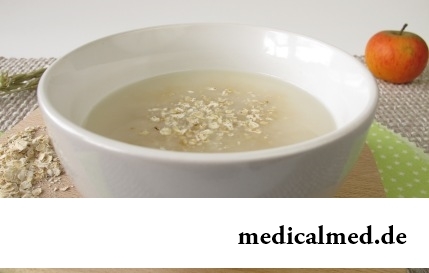





Bacteria
Bacteria (bacteria, unities. h bacterium) – the microorganisms which are characterized by lack of an accurate nuclear membrane thereof considered as more primitive in comparison with animal and plant cells (action of overwhelming number of antibiotics is directed to destruction of walls of bacterial cells). The majority of bacteria are one-celled, at the same time cells can have the following forms: spherical (coccus), spiral-shaped (sperilla), rhabdoid (bacillus), spiral (spirochete) and in the form of a comma (vibrio). The sizes of bacteria usually vary from 0,5 to 6 microns. Mobile individuals possess one or several short moustaches departing from their surface (from a cell wall). Many bacteria have the capsule – a thick layer of considerably ovodnenny material; property under unfavorable conditions to form the based forms keeping viability throughout the long period is inherent in some of them (such as endospore). Bacteria by simple cell fission breed (бесполо); at incomplete division of daughter cells there can be catenation and other forms. In the presence of a dense medium reproduction of bacteria is resulted by the colonies representing visible concentrations of cells. Some of them have the filamentous form, similar to a form of fungi. Separate species of bacteria are capable to be reproduced sexually by means of pairing (conjugation). Bacteria are widespread almost everywhere. They can live in water, the soil or air, and also to parasitize in an organism of plants, animals or the person. Separate types do not do harm to the carriers while others can become causative agents of various diseases.
In Great Britain there is a law according to which the surgeon can refuse to do to the patient operation if he smokes or has excess weight. The person has to refuse addictions, and then, perhaps, he will not need an operative measure.

Coffee – favourite drink of many. For the last decades it more than once already declared very harmful, extremely useful and even...
Section: Articles about health
One of the major chemical processes happening in a human body are oxidation reactions. They go with participation of fats and carbohydrates which we receive from food, and the oxygen getting to us from air. A main goal of such reactions is it is received...
Section: Articles about health
Practice of use of table salt in the therapeutic purposes contains not one century. Applications which do by means of the fabric impregnated with saline solution are considered especially effective. They have antibacterial and antiinflammatory effect, help to heal wounds, exempt fabrics from excess liquid. Hypertonic salt solution of potassium chloride is applied outwardly at many morbid conditions. Let's tell about the most known of them....
Section: Articles about health
Run - one of the most available and effective ways to revitalize the organism. Knowing about its extraordinary advantage, each of us though...
Section: Articles about health
Bees – really unique beings. Practically all products of their life activity are used by the person. Since the most ancient times medicinal properties of honey and other substances received in the course of beekeeping are known. The fact that all these пр is especially significant...
Section: Articles about health
Modern footwear is extremely various. It stopped being only protection for legs long ago. Today shoes, boots, barefoot persons choose not so much proceeding from their convenience and functionality how many being guided by outward, brand and an opportunity to add with them a stylish dress. At the same time, buying footwear, think of its safety a little. Meanwhile, many popular models can do essential harm to health....
Section: Articles about health
The phenomenon of improvement of a condition of the patients at administration of drugs who are not containing active agents, so-called effect of placebo is known...
Section: Articles about health
Ayurveda - the most ancient tselitelsky practice which came to us from India. It represents the doctrine about maintenance of physical, psychological and moral health of the person by means of the complex of procedures including a diet, cleaning of an organism, respiratory упр...
Section: Articles about health
We present to yours the TOP of the medicamentous means exerting the stimulating impact on a potentiality, i.e. on ability of the man to commission of sexual intercourse. At once it is necessary to tell that not always disturbances of erectile function can be eliminated with reception of this or that drug. The reasons of decrease in a potentiality there can be a set, from banal overfatigue before tumoral process in a small basin therefore if the man faces similar problems too often, it should turn...
Section: Articles about health
The person, as well as all other beings living on our planet feels weather changing. It is normal meteosensitivity, not...
Section: Articles about health
Eyes – unique body on the structure thanks to which the person obtains about 80% of information on the world around: about a form, color, size, the movement, and also many other parameters of objects or phenomena. But whether much we know about the most valuable body...
Section: Articles about health
The concept "gluten" (differently, a gluten) combines group of the proteins which are a part of rye, barley and wheat. For most of people the use of the food stuffs containing a gluten not only is safe, but also it is very useful. Nevertheless, there is a number of myths about negative effect which allegedly gluten has on health of the person....
Section: Articles about health
For the help to doctors in the choice of optimal solutions for treatment of various diseases the Cochrane scientific organization (Cochrane) will see off совм...
Section: Articles about health
Iodine - one of thirty most important microelements in our organism. The main role of iodine consists in synthesis of thyroid hormones of a thyroid gland - the substances which are responsible for the majority of exchange processes of an organism. It is known that thyroid hormones consist...
Section: Articles about health
What they, women? Beautiful, gentle, passionate and at the same time windy, gusty, and nervous. And what is stranger: have all these qualities of the woman at the same time. But here only the mood their time sharply changes on completely opposite: in the morning they laugh and joke, and in the evening cry or are irritated....
Section: Articles about health
All like to sing. Small children with pleasure are engaged in a vocal, not especially thinking of hit in a melody. Adults most often...
Section: Articles about health
The modern person not always manages to find housing in the environmentally friendly region and such work which would not do harm to health. With food stuffs at first sight the situation is much better: shops are overflowed with goods which are positioned пр...
Section: Articles about health
Statistically, at the address to doctors seven of each ten patients complain of a headache. Actually it is much more people who are periodically feeling unpleasant feelings such. Many people, apart from a headache the reason for serious fears, prefer to muffle independently the next attack medicines. Such behavior is extremely careless, especially if this symptom appears regularly and is followed by other signs of an indisposition. Constants head Bol...
Section: Articles about health
Food with the increased content of sugar is attractive to most of people - it is scientifically confirmed fact. Business here not in a nevozder...
Section: Articles about health
Producers of milk mixes for children assure: mixes are ideally balanced and adapted for needs of babies. If mother should raise artificially the kid owing to serious problems with health, to do nothing – m substitutes...
Section: Articles about health
Eyes – one of the most vulnerable areas on a face therefore age changes concern them first of all. Whether it is possible to keep look youth for many years and what procedures are offered for achievement of this purpose by cosmetologists? And maybe, the only option of rejuvenation is surgery – a blepharoplasty? Let's try to understand this question....
Section: Articles about health
Dark circles (bruises) under eyes – a shortcoming with most of which often fight against the help of cosmetics (proofreaders, salons...
Section: Articles about health
The main role in development of a peptic ulcer of a stomach and duodenum the bacterium Helikobakter plays pilor. Activity and the strengthened reproduction of this microorganism lead to weakening of protection of mucous membranes and their erosive damage. Manifestations not...
Section: Articles about health
New year, wedding, birthday, office party – an occasion to drink at the Russian person will always be. How to reduce a negative impact of alcohol by an organism and to avoid a condition of strong intoxication? The most correct council – to refuse the use of alcoholic drinks. Council is true, but not always feasible. We offer several advice which will help you in cases when it is impossible to avoid alcohol intake....
Section: Articles about health
It seems, quite recently you brought the baby from maternity hospital, but time flew by, and here it is already going to join the first...
Section: Articles about health
Good appetite was always considered as a sign of good health. The correct operation of the mechanism which is responsible for the need for nutrients and receiving pleasure from process of its satisfaction demonstrates that the organism functions without special from...
Section: Articles about health
All are familiar with cold, and practically everyone believes that he has sufficient knowledge and experience that correctly to treat it. In practice most of people makes mistakes in attempts to get rid of rhinitis, and divides numerous delusions it....
Section: Articles about health
